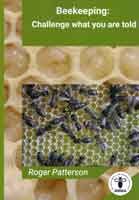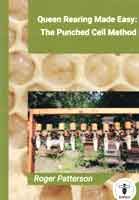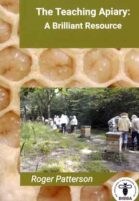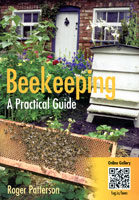Have you ever met a beekeeper with fixed opinions about a beekeeping topic? Have you questioned what experience and knowledge they are based on? The craft used to be local, traditionally learnt by observing bees, whereas today, we are bombarded with international communications, promotions, soundbites, sensationalism and the like, with the same information, whether reliable or not, appearing in many places. Taking inappropriate advice can mean a dead colony, so we need to occasionally check and challenge what we are told.
In a departure from the usual beekeeping book, the author boldly questions some mainstream teaching and dogma. Rather than criticising, he offers possible alternatives which are based on many years of experience and some common sense. This book is a must for all beekeepers, from those new to the craft who may be very proficient and professional in other aspects of their lives but influenced by seeing the same, possibly unreliable, information in several places, to more experienced beekeepers. ho may have seen errors in what they have been told, but blamed the bees ra her than what may be poor information.
Not every anecdote, myth or scientific finding can be covered but this book visits a whole range of topics about honey bees, how they behave, the observation and management of colonies, the equipment, pests and disases a goodly amount on queens and queen cells as well as general beekeeping.
Having read the book and its refreshingly welcome look at fallacies, universal beekeeping “truths” and everything in between, the reader should be encouraged to have a more questioning approach to their beekeeping knowledge growth by seeking new things to learn, reviewing some past assumptions and modifying their management system. As the title says: “Challenge what you are told”. Ignore this book at your peril!
Roger Patterson was brought up on a small farm in West Sussex (UK) and started beekeeping as a schoolboy in 1963, shortly after a notoriously hard winter had decimated many bee colonies nationally. He joined the local Wisborough Green Beekeepers Association (WGBKA), becoming chairman at the age of 23, a position he held for 26 years. He first demonstrated the craft of beekeeping at the WGBKA teaching apiary in the early 1970s and has taught there ever since.







